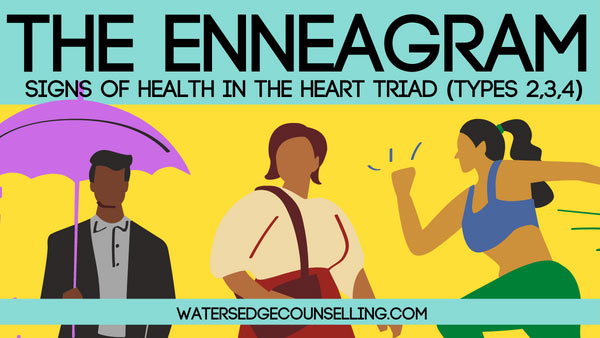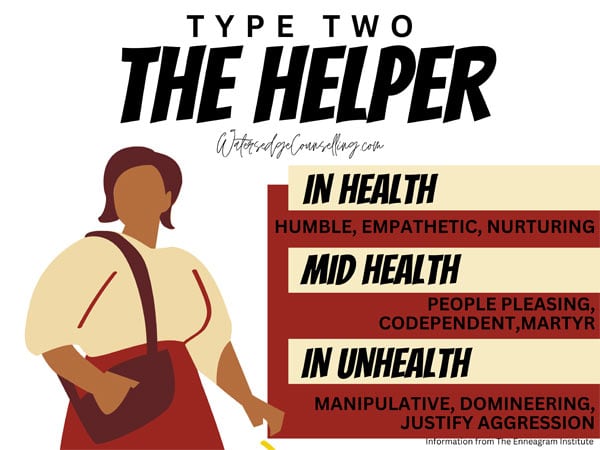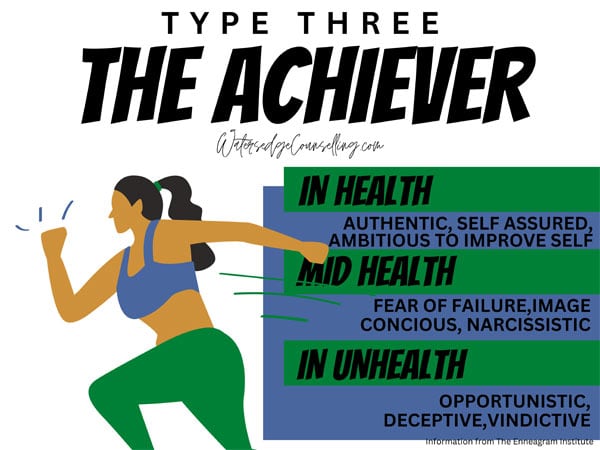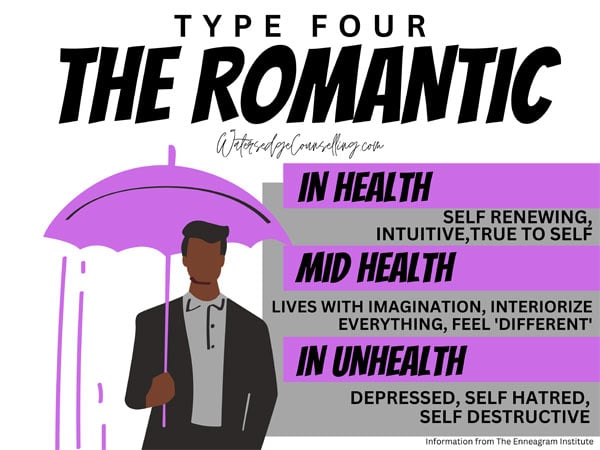
When we know someone, we start picking up in the small signs they are doing well or not so well. If a friend is singing, has a bounce in their step or takes a curve ball in their stride, you know they are in a good space. But if you see a friend acting out in anger, hiding away or self-sabotaging, you realise something is going on that is negatively affecting them. Can you relate?
These are all general characteristics we all show at different times, but a more in depth way of understanding ourselves and the people in our lives occurs when we know the Enneagram. The Enneagram is an ancient personality theory that divides humans into nine different personality types. While every human is unique, researchers have found that people generally fit into nine different personality types, driven by their motivation, fear and immediate response.
In the past we have explored all nine personality types – the Heart Triad (Type 2: The Helper, Type 3: The Performer, Type 4: The Romantic), the Head Triad (Type 5: The Investigator, Type 6: The Loyalist, Type 7: The Adventurer) and the Gut Triad (Type 8: The Challenger, Type 9: the Peacemaker, Type 1: The Reformer). But what do each of these types look like when they are healthy, at a mid level (aka doing ok) and are unhealthy?
The Enneagram Institute deep dives into the characteristics of each personality Type and shares how our behaviour changes depending on our level of health. So we thought it was time to share some of these observations with you! Once you know your personality Type (Find it here), this series will equip you to become more self aware.
You can then take steps to take care of you, adjust and head towards health. If you identify characteristics in your mid-health section, this is a sign you need to adjust some things to head towards health. While you may be able to maintain here for awhile, it slopes towards unhealth and exacerbates self-sabotaging and harmful behaviours.
And if you know the Enneagram Type of a partner, a friend or a colleague, these tiers of health will give you language to better understand them, set boundaries, and give them the support they need. In some cases, this support must be entirely from outside sources and not from you, especially if the person is abusive, bullying or harming you.
Today we are staring with the Heart Triad – the types motivated by their heart and emotions before anything else.
Type 2 is The Helper: the people who live to serve others, seem to be friends with everyone, and are very altruistic. In health, they are nurturing and assertive You can tell they are struggling when they show signs of co-dependency or have a need to people please. And if you them acting manipulatively, this is a sign they need extra support, time and space to heal.
Type 3 is The Achiever: accomplished people who appear to have it all together and rarely stop. In health, they are motivated, authentic and driven. You can tell they are struggling when they show characteristics of narcissism and are image conscious. And if you see them behaving deceptively, this is a sign they need additional supports
Type 4 is The Romantic: unique and creative individuals driven by stories and their emotions. In health, they are intuitive and authentic. You can tell they are struggling when they view the world through a skewed imaginary lens (different to having an imagination), and when they interiorise everything. In unhealth, they are depressed, and can be self-destructive.



Check back next week for part two in our Enneagram signs of health series when we look at the Head Triad: Types 5, 6 and 7. See all our Enneagram downloads here.
Do you want to learn more about The Enneagram? Would you like to better understand how to be the healthiest version of yourself? Here’s what you need to do: Contact Colleen on 0434 337 245, Duncan on 0434 331 243 for a FREE 10 minute consultation on how we can best help you or book online.